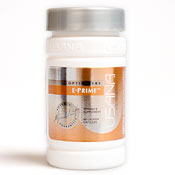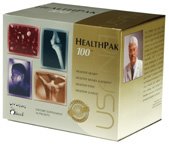VITAMIN E SUPPLEMENTS REDUCE THE RISK OF ALS
 Vitamin E, one of the most powerful antioxidants known, plays a critical role in the body by protecting LDL and cell membranes from oxidation damage. Vitamin E also helps maintain healthy DNA in the interior of cells. Vitamin E works with other antioxidants to provide optimal health to cells and organs. Several laboratory and clinical studies have shown the importance of vitamin E in supporting good cardiovascular health and a strong immune system in the elderly.
Vitamin E, one of the most powerful antioxidants known, plays a critical role in the body by protecting LDL and cell membranes from oxidation damage. Vitamin E also helps maintain healthy DNA in the interior of cells. Vitamin E works with other antioxidants to provide optimal health to cells and organs. Several laboratory and clinical studies have shown the importance of vitamin E in supporting good cardiovascular health and a strong immune system in the elderly.My dear father-in-law passed away this past year with a degenerative disease very similar to ALS. Even though we tried many things including a trip to Mayo Clinic, we were too late. A good quality supplement with proper antioxidants is crucial in fighting degenerative diseases.
Here's more proof of the value of Vitamin E:
Amyotrophic Lateral Sclerosis (ALS), or Lou Gehrig's disease causes degeneration and death of nerve cells. Harvard researchers found that people who used vitamin E supplements for over ten years experienced less than half the risk of dying of ALS than those who did not use vitamin E supplements. Amyotrophic Lateral Sclerosis (ALS) is more commonly known as "Lou Gehrig's Disease". ALS is a progressive disease that causes degeneration of some of the largest of all nerve cells, called motor neurons. The disease causes the motor neurons to degenerate and eventually die. New research has found an association between the use of vitamin E supplements and a lower incidence of this degenerative disease. Researchers from Harvard School of Public Health followed 957,740 participants in the American Cancer Society's Cancer Prevention Study II for ten years. A follow-up of 170,000 subjects in 1992 showed that people who used vitamin E supplements for over ten years experienced less than half the risk of dying of ALS than those who did not report using vitamin E supplements. Although vitamin E was the only nutrient examined that was associated with a lower risk of ALS, it is not possible to rule out interactions with other nutrients or factors, since people who use vitamin E also tend to use other supplements and may share other healthy lifestyle habits.
Ann Neurol 2005 Jan;57(1):104-10
For more information about USANA products including a good Vitamin E supplement, please contact me. I would love to hear from you!
I wish you Health, Happiness & Prosperity!






